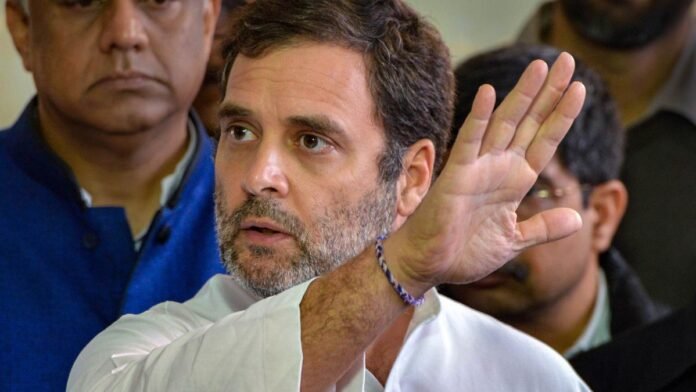181 academics have demanded legal action against him for allegedly spreading falsehoods regarding the appointment of Vice Chancellors. The letter, signed by eminent scholars from various fields, accuses Gandhi of disseminating misinformation and tarnishing the reputation of academic institutions. The controversy surrounding Vice Chancellor appointments has sparked a heated debate, with academics calling for accountability and transparency in the selection process.
The genesis of this uproar stems from Rahul Gandhi’s statements alleging nepotism and favoritism in the appointment of Vice Chancellors. Gandhi, a prominent figure in Indian politics, has been vocal about his concerns regarding the alleged lack of meritocracy in key academic appointments. However, the signatories of the open letter assert that Gandhi’s claims are unsubstantiated and baseless, aimed at creating unwarranted controversy.
The academics emphasize the importance of upholding the integrity of academic institutions and ensuring that appointments are made on the basis of merit and competence. They argue that Gandhi’s statements, if left unchecked, could undermine public trust in the education system and erode the credibility of academic leadership.
Furthermore, the letter highlights the potential legal ramifications of spreading misinformation. Accusing Gandhi of indulging in slanderous activities, the academics stress the need for accountability and recourse to legal action to address such allegations. They assert that public figures must exercise caution when making statements that could harm the reputation of individuals or institutions.
The Vice Chancellor appointment process in India has long been a subject of scrutiny and debate. Critics often allege political interference and favoritism in the selection of candidates, which undermines the principles of academic autonomy and meritocracy. The recent controversy surrounding Gandhi’s remarks has reignited calls for reforms to ensure transparency and fairness in the appointment process.
While acknowledging the need for reform, the academics caution against politicizing the issue and resorting to unfounded accusations. They argue that constructive dialogue and evidence-based criticism are essential for addressing the challenges facing the education sector. By resorting to sensationalism and rhetoric, Gandhi risks undermining genuine efforts to improve the quality and integrity of academic leadership.
The open letter serves as a stern rebuke to Gandhi and a rallying cry for upholding the principles of truth and integrity in public discourse. It underscores the responsibility of political leaders to engage in informed and responsible communication, especially when addressing matters of public importance such as education.
In response to the allegations, Gandhi’s supporters have defended his right to raise concerns about the integrity of academic appointments. They argue that his criticism is motivated by a genuine desire to improve the functioning of academic institutions and ensure accountability in governance. However, critics remain skeptical of Gandhi’s intentions, questioning the timing and veracity of his statements.
As the controversy continues to unfold, it underscores the complex relationship between politics and academia in India. While politicians have a legitimate role to play in advocating for reforms and holding institutions accountable, they must do so with integrity and respect for facts. The open letter to Rahul Gandhi represents a collective call to uphold these values and hold public figures accountable for their words and actions.
In addition, the demand for legal action against Rahul Gandhi reflects growing concerns about the spread of misinformation and its impact on public discourse. By holding him accountable for his alleged falsehoods, the signatories of the open letter send a clear message that truth and integrity must prevail, especially in matters as critical as the appointment of academic leaders.
In light of the escalating tensions, it is imperative for all stakeholders to prioritize constructive dialogue and evidence-based discourse to address the underlying issues plaguing the education sector. While accountability is essential, it should not overshadow the collective goal of fostering a conducive environment for academic excellence and institutional integrity. By working together, policymakers, academics, and civil society can forge a path towards meaningful reform that upholds the principles of transparency, fairness, and meritocracy in Vice Chancellor appointments, thereby ensuring the continued advancement of education in India.

